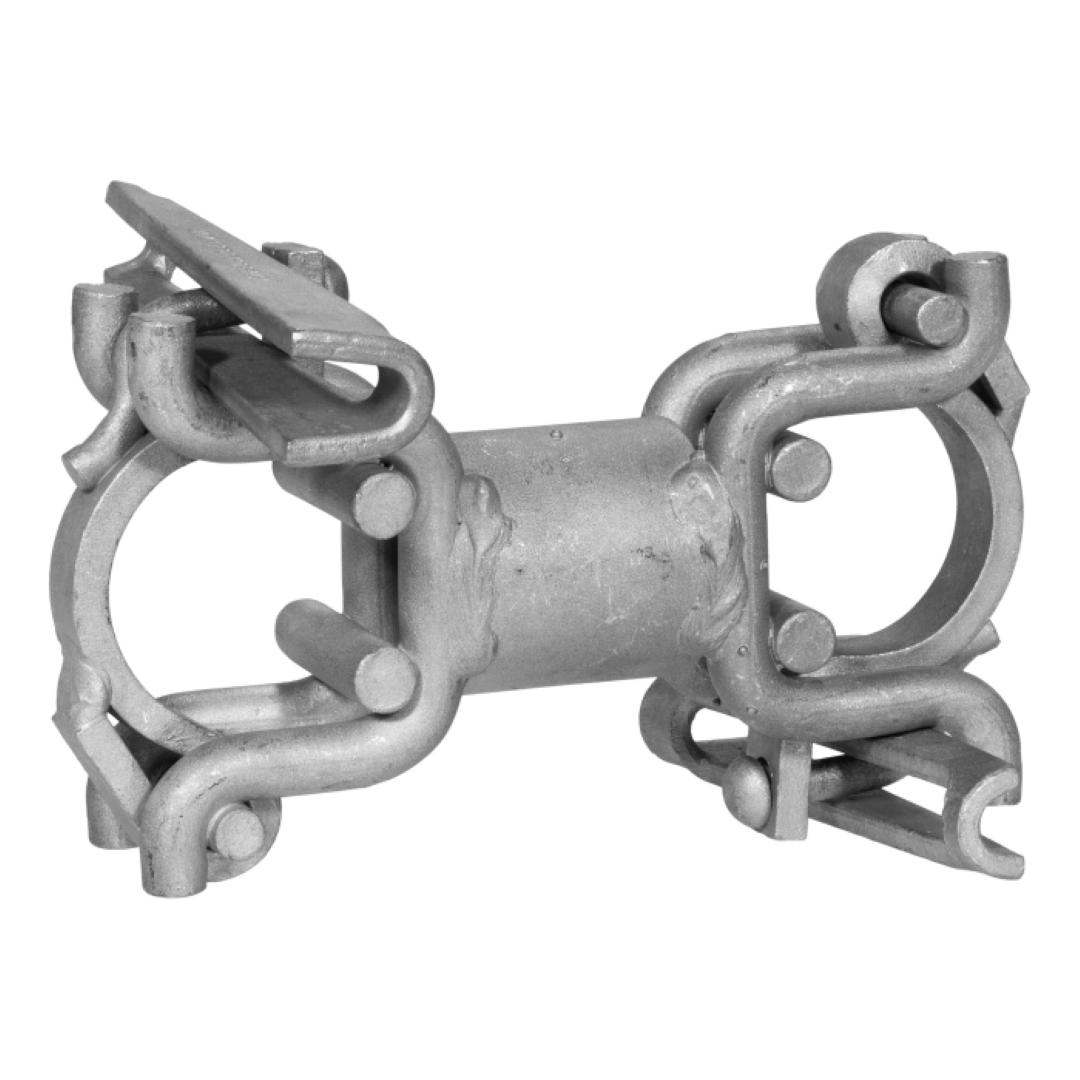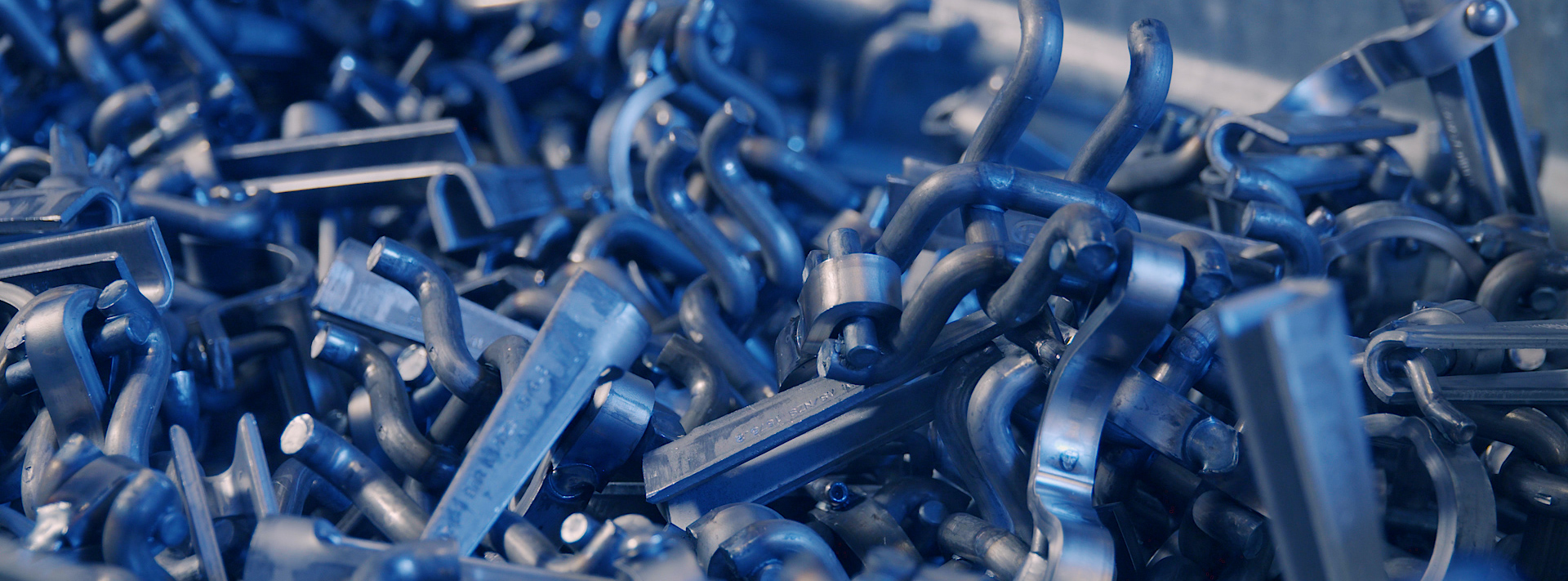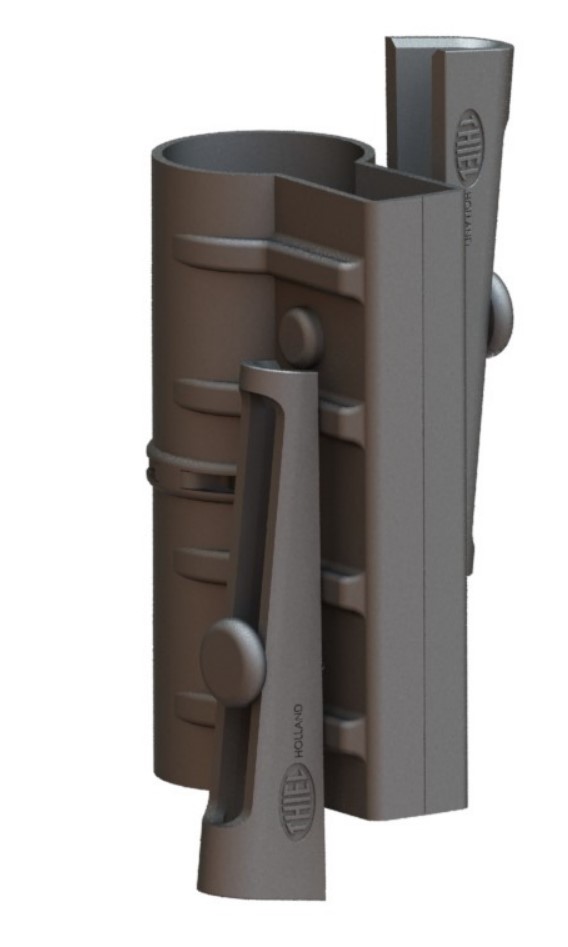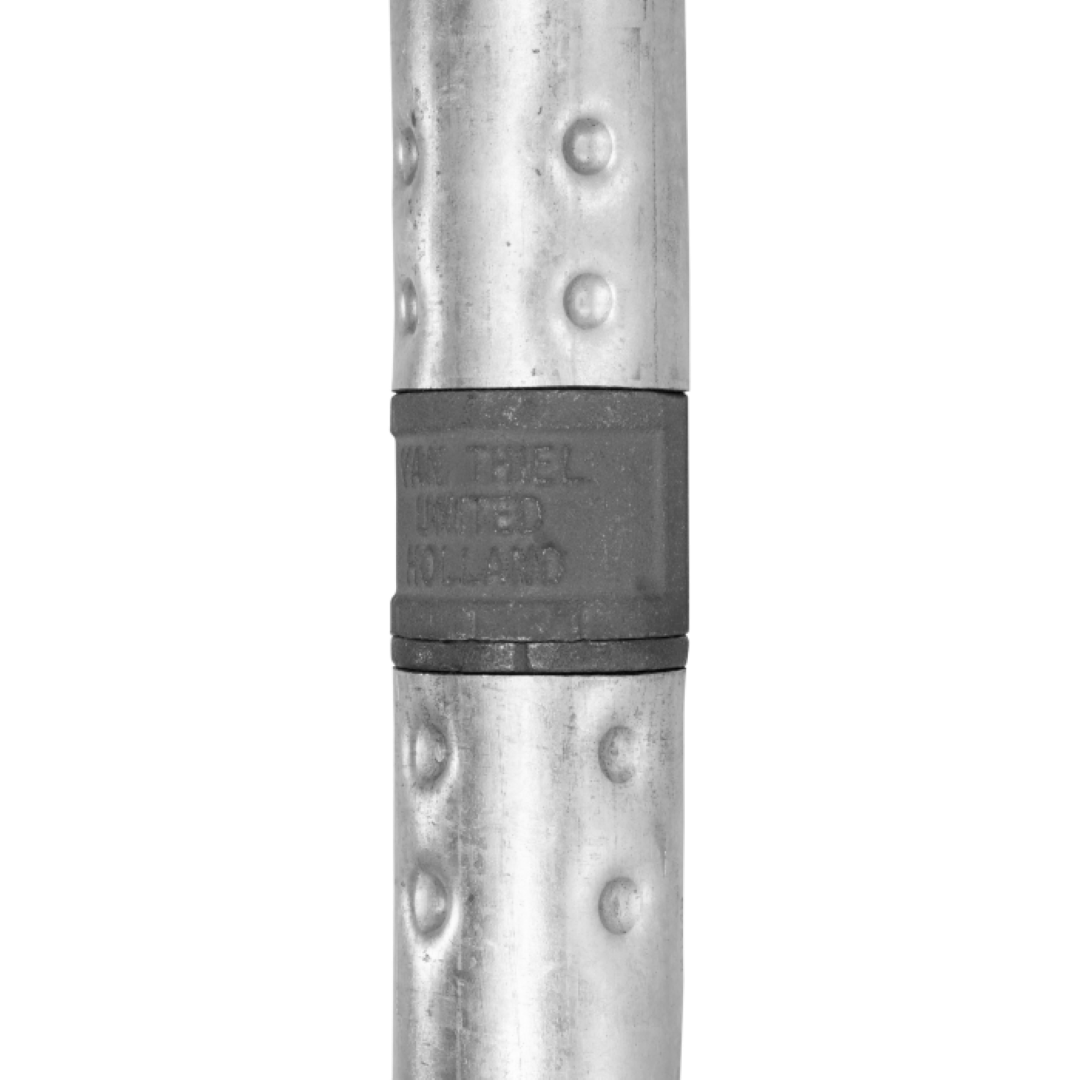Parallel Coupler – P1132
48,3mm - 48,3mm
This parallel coupler connects two tubes parallel next to eachother.


With a coupling you can temporarily connect two pipes:
- Universal joint: connecting two pipes at right angles to each other
- Swivel joint: connecting two pipes at an angle
- Welded couplings: connecting two pipes lengthwise
- Beam couplers: Attaching a pipe to a steel beam
The connection is achieved by clamping the coupling to the pipes and striking the keys.
Standards
Van Thiel couplings comply with the standard NEN-EN 74-1:2005 / -2:2008 / -3:2007 couplings and accessories for steel tube scaffolding or have been subjected to comparable tests in-house.
Requirements and test methods:
- Class B for universal joints, certified for use as a BB coupling
- Class B for swivel joints
- Class B for welding couplings Values obtained
- by testing for beam clamps
Raw material
The raw materials used must meet the requirements set in the applicable Eurocode and/or the values as stated in NEN-EN-12811-2.
The raw materials are subject to controls according to the ISO 9001-2000 system.
Parallel coupler Uniqueness
Van Thiel couplings are recognizable by the stamped “EN74 B CU” mark in the coupling key.
Quality
The Van Thiel quality department checks the quality of the couplings through continuous process control and daily testing of the couplings.
Corrosion protection
The couplings are hot-dip galvanized and therefore protected against rust for life. Corrosion protection according to:
- Sherardizing: NEN-EN 13811:2003 and NEN-EN-ISO 14713-1 and -3:2010
- Galvanizing: NEN-EN-ISO 1461:2009
Parallel coupler Usage
Only use links to connect:
- Two steel scaffolding tubes with an external diameter of 48.3 mm and a wall thickness in accordance with NEN-EN 39 or comparable
- Two aluminum scaffolding tubes with an external diameter of 48.3 mm and a minimum wall thickness of 4 mm.
You must hit couplings with a (500 grams van Thiel) hammer up to the ‘dead blow’ (NEN-EN 74-1).
Strike with normal force between one and three strokes.
You should visually inspect couplings before each use. Do not use the couplings if there is visible damage or deformation.




